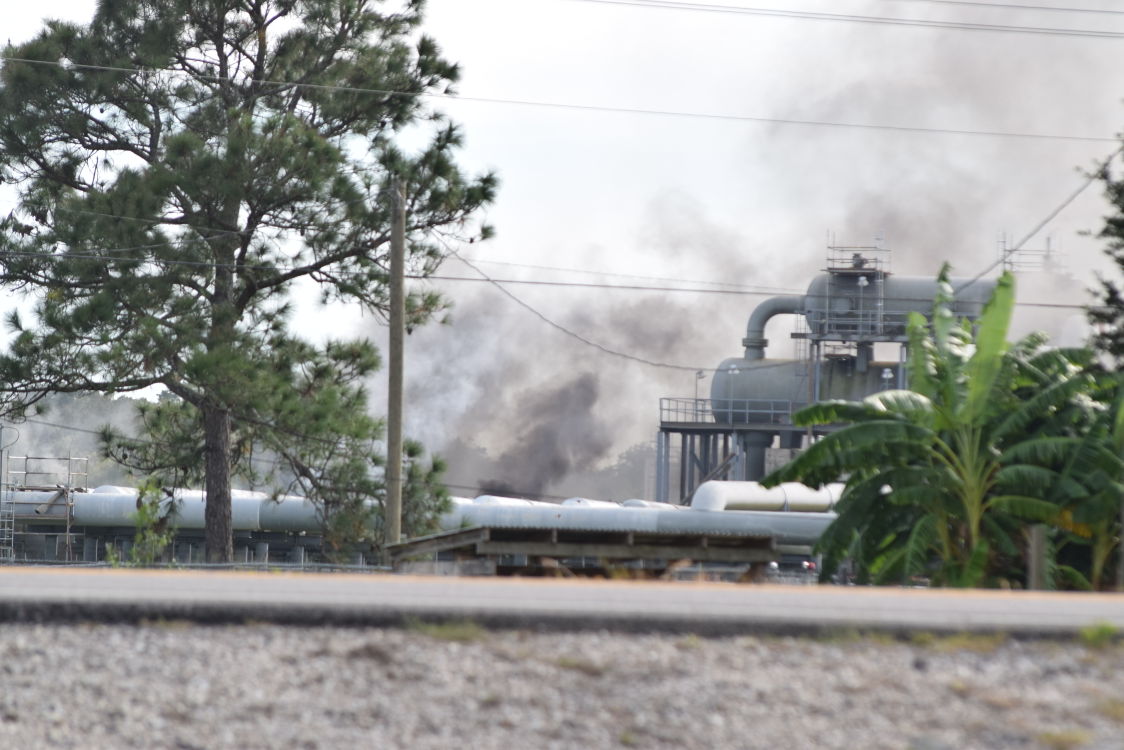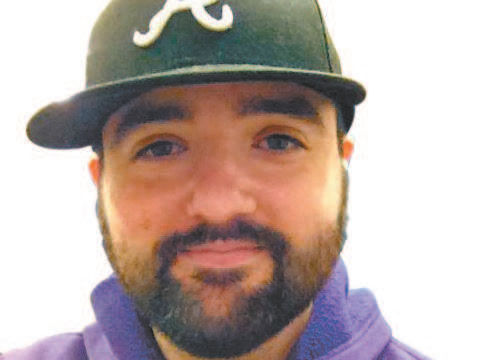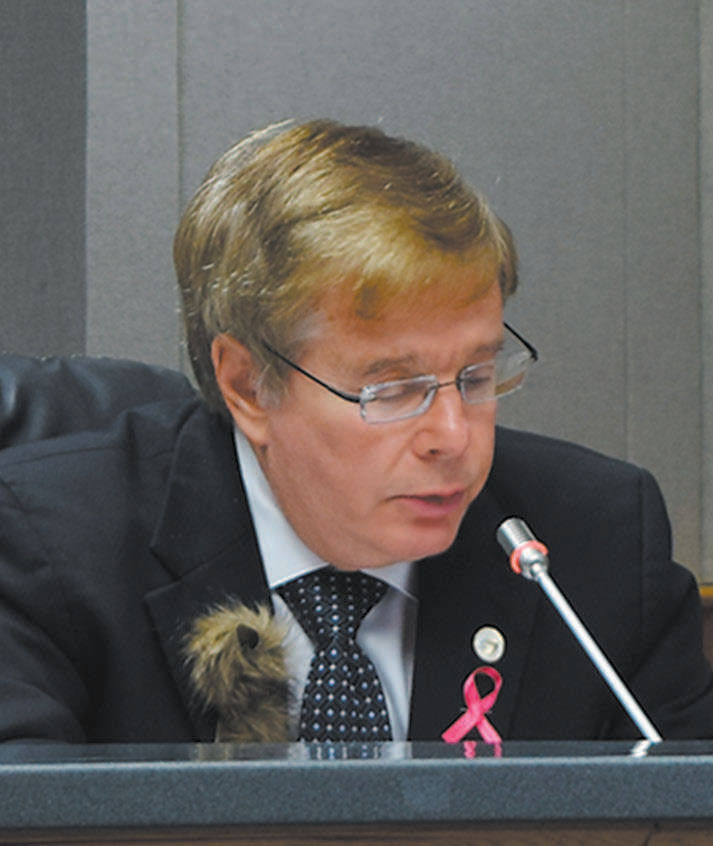
3 killed in explosion and fire in Gibson
October 8, 2015
Baseball is now a dinosaur
October 13, 2015The retirement of Todd Duplantis as Houma’s police chief, which was announced in June and occurred in August, was at the time represented by parish officials as a pressure-free, voluntary decision.
In-depth interviews along with audio recordings and documents obtained by The Times contradict those claims.
They instead suggest that Parish President Michel Claudet made false public statements about Duplantis’ departure after telling the former chief behind closed doors that he was being terminated, later acceding to a request from Duplantis that he instead be allowed to retire.
Claudet also told Duplantis it was the Terrebonne Parish Council that wanted him to resign. But interviews with parish council members indicate this was not the case.
Duplantis now acknowledges that he did not disclose the true reasons behind his retirement when it was announced.
“I was still under the reins of Claudet, still an employee,” Duplantis said, when pressed for an explanation. “Since I was still employed and could be terminated at any time, I did not want to cause any more friction.”
Claudet has been far less forth-
coming. He has refused to address the issue despite e-mailed requests for answers that include his own quotes from audio recordings contradicting his public statements.
The evidence presents a rare inside look at how a matter of public importance was handled behind closed doors by officials, then presented as something entirely different in the open. It is significant as well because of the degree to which it presents a side of Michel Claudet that runs counter to the benevolent, measured style the public is used to seeing.
Good-government advocates and ethicists – while refusing to comment on specifics regarding the Duplantis matter and unable to address its veracity – and questions it raises – acknowledge that questions it raises are important to evaluating the relationship between government officials and the public they serve.
“There is a public trust issue,” said Robert Travis Scott, director of the Public Affairs Research Council of Louisiana, a Baton Rouge non-profit that advocates for accountability in government, addressing the question of what happens when public officials say one thing publicly but do another in private. “If there is something that a public official believes is private and should be kept private, they should say so. What you do not do is hide the truth. What you do not do is deceive.”
Tumultuous History
The current conflict is deeply rooted in prior issues surrounding the HPD, which became public knowledge in 2008 when its chief, the late Pat Boudreaux, was placed on administrative leave following allegations of sexual harassment and misuse of police department equipment.
Michel Claudet – then a freshman parish president – made a lieutenant named Todd Duplantis interim chief of the HPD, an agency consultants identified as “out of control” and devoid of leadership and accountability.
One year later, in 2009, a state law was enacted at Claudet’s request authorizing Terrebonne Parish presidents to hire and fire public service chiefs at will, taking the positions out of Louisiana’s civil service system.
Duplantis, meanwhile, put new policies into effect – largely at Claudet’s request – that rankled some officers and staff, while winning praise from others.
A settlement was reached between the parish and Boudreaux’s accusers but he remained on leave, resigning in 2011, shortly before his death.
Prior to that time other lawsuits and complaints from HPD employees dogged the department and Claudet’s administration.
Duplantis himself was cleared of allegations brought by employees similar to some of those relating to Boudreaux and, in 2011, he was unanimously confirmed by the parish council as the HPD’s chief, at Claudet’s request.
The law placing the chief’s position at the will of the parish president became a subject of debate in 2012. Among speakers appearing before a legislative committee seeking to have it repealed was Kyle Faulk, an HPD sergeant who, like many officers, believed the chief’s job should be subject to civil service oversight, ostensibly removing politics from the job. State House Rep. Gordon Dove ended up re-writing the law, giving it an expiration date of 2016, at which time it would no longer apply.
Claudet made statements at that time indicating he would keep Duplantis as his chief through 2016, when his own tenure would end due to term limits.
Among changes Duplantis made in the HPD, around the same time as the highly publicized debate on the bill, was a new schedule for Faulk, and changes in job responsibility.
$300,000 Question
Faulk maintained that the changes – which included being moved from a day schedule to one that rotated between day and night shifts and interfered with his child visitation agreement – were punishment for his public criticism of the law.
Accommodations could not be reached and Faulk took his complaints to U.S. District Court in New Orleans, and a three-year odyssey through the federal system.
The parish itself was removed from the suit by judicial order, leaving only Duplantis to defend against the allegations. A parish-paid attorney, David Allen, represented Duplantis. Parish ordinances contain a provision that, in most cases, taxpayers foot the bill for counsel and court awards for employees.
In July, 2014 attorney Courtney Alcock, acting on behalf of the parish, sent a request for an opinion to the Louisiana Attorney General, asking if that indemnity clause applied in a case such as the one brought by Faulk.
A few months later, according to a spokesman for Attorney General Buddy Caldwell, the request for an opinion was withdrawn.
Duplantis lost the case, and the parish appealed an initial award for Faulk of nearly $500,000. A new jury trial was granted, and in April 2015, Faulk was awarded $250,000 in damages.
Faulk had the right to appeal that decision, seeking more money. But the parish, which had already spent more than $90,000 defending the case, sought to halt any further action. A settlement for $300,000, eliminating any further court action, was proposed. The council was to meet in an executive session on June 1
‘He Said He Would Terminate Me’
Duplantis had sought his own legal counsel – attorney Danna Schwab – and she was distressed by a request sent that morning by a parish attorney.
Duplantis was asked to sign a document accepting personal responsibility for the settlement, if a court or an attorney general’s opinion found that the parish indemnity provision did not apply.
The document stated that an attorney general’s opinion had been sought. It did not say that the parish – a year earlier – had canceled the request for that opinion.
Schwab had a firm response to the request made of her client.
Duplantis would not sign any such document, Schab said in an e-mail to parish attorneys “as it has always been his understanding, as with all parish cases, that the parish would not only defend him, but also indemnify him for damages.”
That night the council held its executive session, approving the settlement.
The lone vote against it was from Councilman Greg Hood. No comments were made by council members when the vote was taken, once they returned to open session.
The next morning, June 2, Claudet summoned Duplantis to his office.
“That was when [Claudet] said he would terminate me,” said Duplantis, who recounted the experience of begging Claudet to allow him to retire instead.
“I asked him to give me until Aug. 6 so that I could make my 30 years,” Duplantis said. “I wanted to go out with dignity.”
Duplantis said Claudet told him council members would be consulted to determine if retirement was acceptable and the two met again on June 3.
Council is Blamed
The June 3 conversation was recorded by Duplantis without Claudet’s knowledge, a practice that Louisi-
ONLINE
Hear the audio at houmatimes.com
Michel Claudet,
Terrebonne Parish President Michel Claudet, (at left) told former Houma police chief Todd Duplantis he was terminated in June, but allowed him to retire in August. Audio recordings highlight conversations that occurred between them.
Todd Duplantis and his wife Darlene, after a voyage on the Carnival Dream taken after his retirement as Houma police chief in August.













